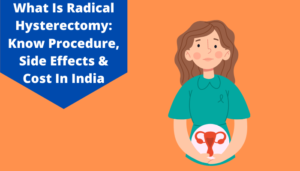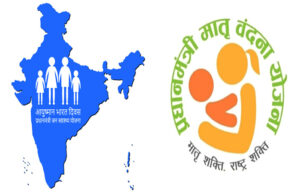Buy Family Floater Health Insurance Plan Online in India
Family Floater Health Insurance
Family is our biggest treasure. Protecting our family members during the many adverse consequences of life is everyone’s priority. Buying health insurance is a sensible way to financially secure family members’ healthcare requirements; should they have to face health concerns. Whether sudden emergencies or planned medical treatments, health insurance is one of the best solutions to medical expenditure for family members.Many people wonder, ‘should I buy a family health insurance plan or personal health plan?’ or ‘should I buy separate medical insurance for parents’? And most times, they find the answer to be confusing and complicated. In reality, however, it’s a relatively simple choice to make. Every type of health insurance plan has benefits and plus points.
As it is popularly known, a family health insurance plan or family floater plan offers coverage to all family members under one umella policy. Each member who is a part of the health policy is insured for the entire sum insured of the particular policy and is eligible to the whole sum insured.
Most family plans offer coverage for self and spouse, children, and parents. Many insurance companies also offer family plans that include coverage for in-laws, siblings, and grandparents. Different insurers may offer different kinds of family floater plans.
In a family health insurance plan, the sum insured can be used by all the members if needed or any members. For example, if a family of four has a family floater plan of Rs 10 lakhs and one member of the family needs the entire ten lakhs to cover a medical emergency, the whole amount can be availed of the full limit by that member. Conversely, if any of the members use a sum of say Rs 4 lakh, the remaining Rs 6 lakh.
Why is family health insurance a necessity?
The rising rates of inflation is a crucial concern for families. Add to it the increasing incidents of critical illnesses, lifestyle diseases, and uncertainties related to health. Families have members of all age groups – young and old. While the young may be healthy, accidents and health uncertainties can knock on anyone’s door. Older people are more vulnerable and have a high probability of hospitalization as they age. In such conditions, health insurance is a necessity. Here are a few reasons it is a must-have.
Health emergencies
Families have members of all age groups who might require different types of medical treatments. Health emergencies that cost a huge amount can disturb the financial stability of families. In India, a majority or the population does not have health insurance or they have an inadequate sum insured.
During times of health emergencies, people use their savings to leave them bankrupt, disrupt their future plans, or borrow money from friends and families that increase their debts. Debts can disrupt financial plans adversely. At times, debts due to medical expenditures can disturb people’s financial stability for years to come.
Health insurance can help safeguard families from such emergency expenses, debts, and chances of eating into their savings. Family floater health insurance can offer a large sum insured to each family member under one insurance policy.
Financial safety
Family health insurance ensures financial safety during medical emergencies of any of the family members. Families can face health emergencies of different kinds – children meeting with accidents, adults falling sick and elders developing critical ailments. Moreover, lifestyle and unhealthy living can increase diseases’ chances to family members in all age groups.
Medical expenses can significantly impact a family’s finances and financial plans. Health insurance can ensure financial safety. By paying nominal and affordable premiums at pre-defined periods, families can make health insurance a part of their financial plans to not have to bear huge medical expenses. Health insurance can work as a protective shield against medical costs.
Inflation
If there’s one constant thing, it’s inflation. Inflation, not just in the overall economy but also in the medical industry. The costs of medicines and treatments has seen a consistent increase in cost. Moreover, with new technologies being introduced and the medical industry quickly adapting new technology, it is causing a faster inflation rate.
One way to combat inflation – health insurance. Certain health insurance types have fixed premiums, which means the premium amount would not increase even if there’s inflation. Inflation has a direct effect on the medical bills that one would have to pay. A medical treatment that costs a few thousand could cost lakhs after a few years. Health insurance with a sufficient sum assured can ensure families can fight inflation without stress and financial worries.
Types of family health insurance
Critical illness health insurance
Critical illness insurance plans are specially designed to provide financial coverage against critical illnesses. Diseases such as cancer, diabetes, cardiovascular diseases, hypertension, kidney failure, and paralysis are included in critical illness plans. Usually, the sum insured is paid in a lump sum by the insurer. The premium for critical illness plans is usually on the higher end as the risks of life and high expenditures are higher in these ailments. Policyholders with critical illness are risky for the insurer and hence insurers are cautious when underwriting these plans. These plans usually have lesser flexibility for add-ons, compared to general comprehensive insurance plans. These plans do not cover medical expenses arising from other health issues not related to the critical illness.
Medical insurance
Medical insurance plans are comprehensive plans that provide coverage for hospitalization expenses. Mediclaim insurance is designed to cover medical costs arising out of medical emergencies up to the sum insured. Mediclaim policies do not cover critical illnesses. Mediclaim insurance plans offer coverage for hospitalization – in-patient, pre and post hospitalization, and day-care treatments. It offers a lump sum cover towards hospitalization expenses. Mediclaim plans are available for a specific tenure. Mediclaim insurance policies are cost-effective, as typically, the sum insured is less, and the term is limited. Due to these two factors, the premium of Mediclaim plans is low.
Benefits of buying health insurance plans for family
-
Stress-free hospitalization cover:
Many people, especially those with a large family of dependents, face regular and frequent medical expenses. Having a family health insurance plan could provide financial coverage in the event of medical emergencies that lead to hospitalization. With family health insurance, one can avail of quality hospitalization without financial stress.
-
Add new family members at ease:
Family floater plans offer greater flexibility than other types of health insurance plans. New family members can be easily added to family floater plans depending on the plan and clauses mentioned in the plan. Affordable premium: Family floater plans are cost-effective and more affordable compared to individual plans. In a family floater plan, all the members are insured for the plan’s total sum assured. This means all members can avail of coverage up to the sum insured or balance sum insured. A family floater plan premium is cheaper than paying a premium for each family member’s individual plans. By having a family plan, you will not need to pay different premiums for every family member.
-
Health insurance cover for parents:
Family health plans are a good way to ensure coverage for the entire family, including parents. While most family floater plans have a limit of 4 or 6 members, some plans even offer coverage for extended family members such as parents-in-law, siblings and grandparents. In some plans, the count can go up to 16 members in one policy. Often, large families in India find themselves in financial stress due to the burden of expenses that occur due to the medical and healthcare needs of different family members, especially senior members or accidental medical care. In such cases, if families have limited budgets to spare for healthcare, a family floater insurance can be a savior – financially and for safeguarding family members.
-
COVID-19 health insurance for the family:
With the risk of the current coronavirus, family floater health plans ensure that every member is protected against expenses that come with COVID-19.
-
Additional benefits:
Family floater plan is an easy way to protect the entire family’s healthcare needs. For large families, it is a more cost-effective solution compared to individual plans. Family plans also offer additional benefits such as maternity coverage, coverage for newborn babies and more.
-
Tax benefits:
Family floater plans provide tax deductions under Section 80D of the Income Tax Act. Families can avail up to Rs 1 lakh tax deductions when tax benefits of all family members are combined.
Things to consider while buying a family health insurance plan
-
Coverage:
Health insurance is an investment, but it could turn into an expense if not purchased with care. It is, therefore, important to first assess the healthcare needs of all the family members. Young couples must consider family planning and maternity health insurance. Elderly parents, young children, siblings, and senior grandparents – all have different healthcare needs.
-
Sum assured:
The sum assured or the coverage provided under a family health plan is essential. Take into consideration the current healthcare expenses, the future probable and sudden accidental costs. Don’t forget to factor in inflation. In India, medical inflation accounts for the highest share in the overall inflation. When buying a family floater plan, it is vital to determine a suitable coverage amount sufficient to cover huge expenses.
-
Flexibility to increase sum insured:
Family health insurance policies offer flexibility to increase the sum insured. Hence, if a family wants to increase the sum insured after buying the policy, they can do so. This flexibility also allows the family to be free of stress and makes the process of health insurance much more manageable.
-
Cashless hospitalization:
Cashless hospitalization can ensure that families do not have to touch their personal savings money at all. With the cashless claim option, the insured under the family floater plan can receive medical treatment without paying for the expenses to the hospital. In a cashless claim, the health insurance company directly makes the payment to the hospital. However, this facility is available when the insured chooses one of the hospitals from the insurer’s approved hospital network.
What is covered under a family health insurance plan?
-
In-patient hospitalization:
Family health insurance plans offer coverage for in-patient hospitalization expenses – medical expenses related to treatments where a policyholder has been hospitalized for more than 24 hours. The coverage would include tests, medicines, doctor’s consultation fees and more.
-
Daycare treatments:
Certain types of medical treatments require a few hours and can be completed without the need for hospitalization. These are called daycare procedures. The expenses towards these treatments are called daycare expenses. Family floater plans offer coverage for daycare treatments.
-
Pre & post hospitalization:
To treat specific diseases, policyholders might incur expenses before and after hospitalization, such as doctor’s visits, ambulance, medicines, diagnostic tests and more. Family health insurance policies offer coverage for pre and post-hospitalization.
-
Hospital cash:
Hospital cash is a feature that offers daily cash allowance. Many family floater plans offer pre-specified hospital cash as part of the policy.
-
Ambulance charges:
At times, policyholders may require to rent an ambulance to get to the hospital and back home. Family floater health plans offer ambulance coverage.
Common exclusions of family floater health plan
-
Pre-existing diseases:
Family health insurance plans usually do not cover pre-existing conditions. Most often, there is a waiting period for coverage of pre-existing illnesses.
-
Cosmetic treatments:
Cosmetic treatments are excluded from most health insurance plans, including family floater plans, unless the treatments are medically recommended as part of other treatments.
-
Self-inflicted injuries:
injuries caused due to any self-harm, such as suicide attempts, are excluded from health insurance for family.
-
Dental, hearing, and vision treatments:
dental, hearing, and vision-related treatments are typically not included in family floater health insurance policies unless they require hospitalization. However, this depends on policy clauses and has to be checked with the insurer.
-
Permanent exclusions:
injuries and health conditions caused by war, HIV, intentional harm, and congenital diseases are excluded from health insurance plans for a family.
Types of Best Health Insurance Plans in India
FAQ
Q. How much does health insurance cost in general?
A. Many factors determine the cost of a health insurance plan. The cost of a health insurance plan depends on the individual's needs and conditions. Different people pay different premiums. The essential factors that contribute to the price of health insurance premiums are: The age of the insured. The older a person, the more the cost of premium. In the case of a family floater, the age of the most senior member determines the premium, the lifestyle and current health conditions, pre-existing diseases and critical illnesses, the occupation and income of the family members, and the type of plan, the coverage offered, etc.
Q. Is there a minimum and maximum age for buying family health insurance?
A. Most health insurance companies in India have an age bracket for entry and exit and maximum buying age. However, this depends on the type of health insurance plan. From a one-day old baby to a teenager to a senior citizen aged 90, anyone can have a health insurance plan.
Q. How much health insurance sum insured is ideal?
A. The sum insured requirements for different people are different, depending on the policyholder's age, health conditions, and medical history. It is not a rule of thumb, but experts suggest that most urban dwellers should have a sum insured of at least Rs 3 lakh to 5 lakh. With healthcare costs rising steeply, year-after-year, it is advisable to have a more significant sum insured of up to 10 lakhs or 20 lakhs. Hence, for a family floater plan of 4 to 6 people, a sum of 50 lakhs or more should be a good investment.
Q. Why is health insurance important in a family financial plan?
A. Health insurance can help provide financial support in times of emergencies and to meet the high costs of expensive medical treatments. These expenses can leave a huge dent on the pocket and eat into your life savings if not planned for. Health insurance plans can provide a sufficient sum insured for retired people who depend on their corpus or pension for regular income.
Q. Does family health insurance provide tax benefits?
A. Yes, family floater health insurance plans provide tax benefits under Section 80 D of the Income Tax Act. The tax benefits differ depending on the age and other conditions. In many cases, people can save up to Rs 1 lakh tax only through health insurance plans. However, experts suggest that health insurance should not be purchased merely for tax benefits alone.
Q. What is a family floater health insurance?
A. A family floater health insurance plan is a type of health insurance that provides coverage to all the insured family members under one policy, unlike a personal policy, which covers only one person.
Q. Is there a sum insured limit on family health insurance plans?
A. No, there is no limit on the sum insured for a family floater plan. The sum insured depends on the different products offered by insurance companies, the family's requirement, and the budget.
Q. What is the maximum number of family members that can be included in one family floater health insurance?
A. Most family floater health insurance policies offer coverage for self, spouse, children and parents. However, many policies also offer coverage for extended family members like grandparents, siblings, and parents-in-law. The maximum number of members that can be included may vary from one insurer to another.
Q. How do I buy health insurance for my family?
A. You can buy health insurance for your family from many options of insurance companies and plans. Get in touch with an insurance company or an agent that can recommend the best plans. Compare the plans to assess different parameters such as the age of entry, maximum renewal age, maximum sum insured offered, additional features, etc. The fastest and most convenient way to buy a health insurance plan is online. You can also visit insurance aggregators to compare and contrast the features of various health policies offered to make an informed decision.
Q. What can I do if I am not happy with my family floater health insurance policy?
A. If you are not satisfied with your existing family health insurance plan, you can opt for insurance portability. Insurance portability is a service through which a policyholder can shift an existing policy to another insurance plan within the same company or another insurance company.
Q. What documents are required to buy a family floater health insurance plan?
A. In the case of a health insurance plan for the family, insurance companies typically ask for proof of identity documents, including passport, Aadhaar card, driving license, etc. The insurer will also insist on proof of age, birth certificate, and school leaving certificate. The health insurance company will also insist on a complete history of previous ailments and insist on a pre-policy health check-up in some cases. These insurance companies also insist on a separate address proof and at times, also call for income/tax payment proof if the sum insured is too high.
Q. Is it possible to port a family health insurance plan?
A. Yes, health insurance porting within the same insurance company or to another IRDA regulated insurance company is possible. However, different insurance companies' rules and conditions may differ and need to be factored in. It is possible to port a family floater health insurance plan.
Q. Can senior parents be included in family floater plans?
A. Typically, health insurance plans have a cap on senior members' age to be included in a family floater plan. The reason being, older people have more healthcare needs compared to younger people. Another reason is that health insurers would consider the age of the oldest member to calculate the premium. Senior members in a family floater plan would mean higher premiums and higher sum insured because their medical needs are higher.
Q. What is covered under AYUSH for family health insurance plans?
A. Alternative treatments such as Ayurveda, Unani, Sidha, and Homeopathy are covered only if the treatments are done at certified AYUSH centers.











